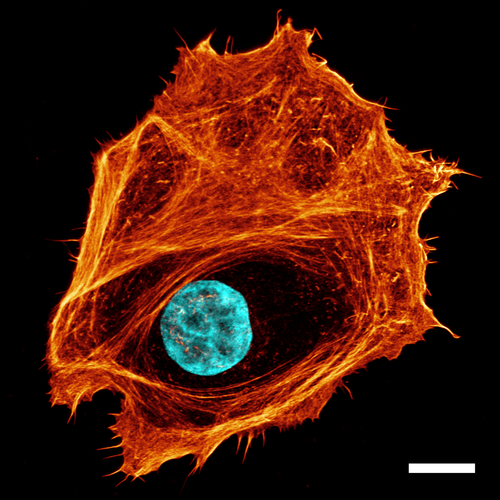The goal of the nearly 100 researchers from around the world is to make more reliable predictions about how tumour cells will behave in the human body and to find ways to medically counteract the spread of cancer cells. “We are delighted that so many pioneers in our field, the Physics of Cancer, have responded to the call for our symposium. The contributions cover a broad spectrum of cell-typical and tissue-specific changes in cancer development and link the various underlying disciplines,” says Professor Josef Alfons Käs, a biophysicist at Leipzig University and one of the organisers of the symposium. Once again, high-profile speakers such as Professor Xavier Trepat from the IBEC · Institute for Bioengineering of Catalonia Barcelona and Professor Erik Sahai from the Francis Crick Institute are expected in Leipzig.
This year’s meeting will focus on the mechanical properties of cancer cells and tumours in relation to healthy tissue. “Often, the changes in cells cannot simply be extrapolated to the characteristics of a tumour. This year’s focus is on the entanglement of cellular and tissue-specific changes, the interactions of tumours with their immediate environment and the resulting diagnostic and therapeutic approaches,” says Dr Jörg Schnauß from Leipzig University.
“In addition to established scientists, we were particularly interested in providing a platform for outstanding early career researchers. We received a large number of contributions again this year. Up-and-coming talents such as Dr Jing Guo from the Charité in Berlin will ensure an exciting, forward-looking combination of topics,” adds Dr Anna Taubenberger, biophysicist at the TU Dresden, who is also part of the conference organising team.
Biophysicists from the TU Dresden and Leipzig University organised the conference together with colleagues from the IBEC Barcelona and Friedrich-Alexander-Universität Erlangen-Nürnberg.






























































